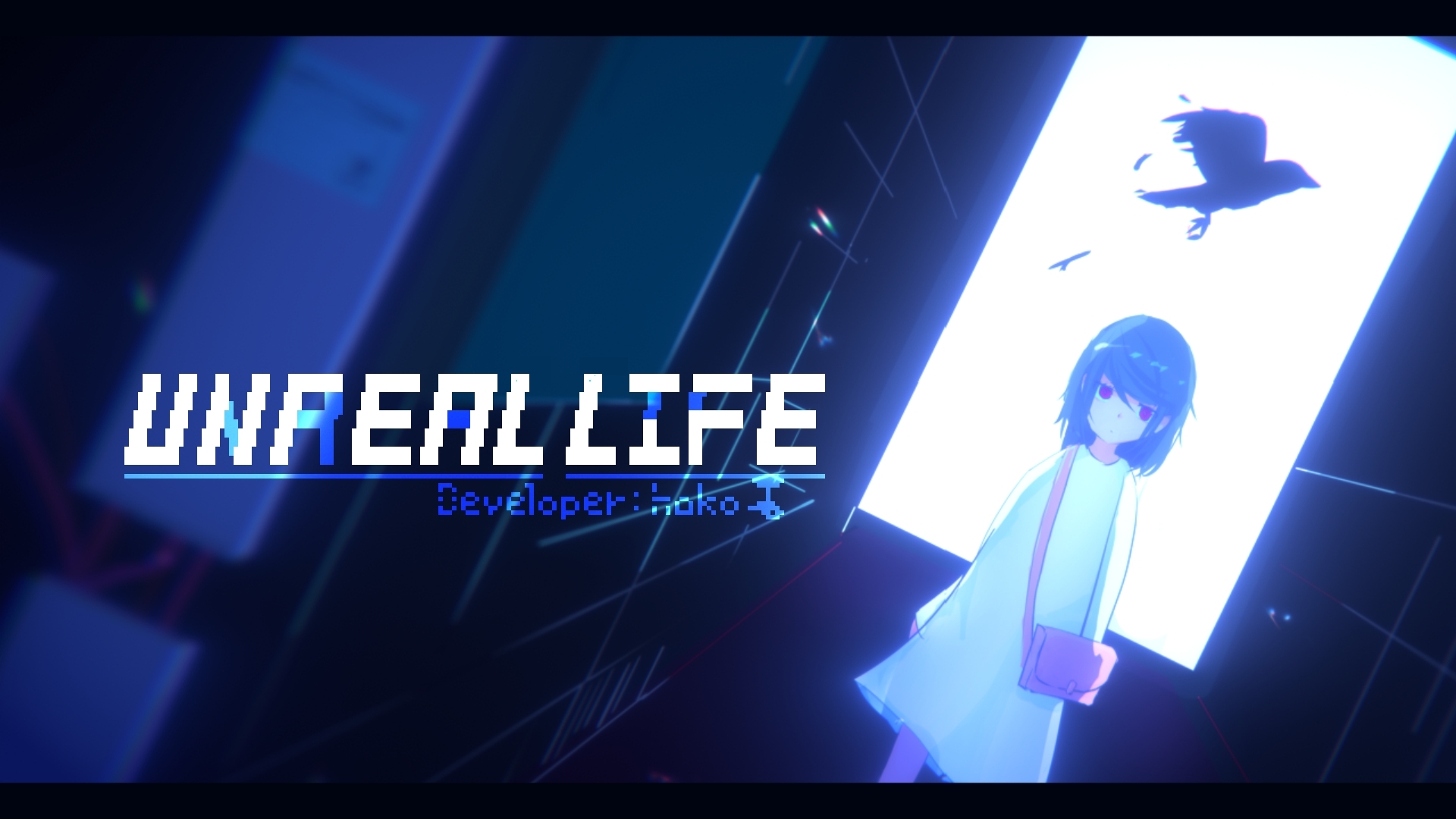Please don’t skip Unreal Life.
At the time of my writing my review, Unreal Life has been on Steam since late November 2020. It has 98 user reviews, with a 97% positive rating; you can do the math on that. Developed by just one person, this is the kind of supremely niche indie game that is destined to fly under the radar. It even flew under my radar until fellow DualShockers writer Iyane brought it to my attention to be reviewed.
I’m glad I ended up doing so, because this was a really lovely experience. The Japanese indie scene appreciated it enough to get it localized to English, so now I feel like I should do my due diligence to see it appreciated here too. Once again, I implore you: please don’t skip Unreal Life if it at all sounds like your kind of thing.
So what actually is this game? Unreal Life is a point-and-click adventure game where you navigate the world, solve puzzles, and progress through the increasingly intriguing story. You play as Hal, a girl who has awoken in a strange world without her memories. She is quickly roused by the sentient AI of the nearby traffic light named 195, who charges himself with Hal’s care. Using Hal’s unusual ability to view the memories of inanimate objects she can touch, the pair seek to find the only person that Hal can remember: her teacher Miss Sakura. If that’s not enough to set the curious tone of the game, I’m not sure what is.

You’ll follow Miss Sakura’s trail across a perpetually moonlit night, meeting increasingly surreal characters and locales. Each new area and task will require some puzzle solving, though none of it is as challenging or esoteric as many classic adventure games. In addition to getting hints from Hal’s power to view memories, some puzzles include using shrimp to lead penguins and turtles to correct places, or rearranging books in a library to open up passages. These puzzle types end up intersecting in creative ways towards the end of the game, so it rarely feels like it’s grown stale.
It’s the characters and narrative that bind the whole experience together, though. Hal and 195 develop a sweet rapport, and many other characters end up being memorable even if they’re not on screen too long. The search for Miss Sakura — as well as Hal’s gradually returning memories — gets increasingly intricate, but so too are the hints that something darker is at play. Unreal Life never descends into outright horror, but it does have moments of unease or darker tones. Those familiar with another Japanese indie cult classic Yume Nikki may find a lot of similarities, but Unreal Life is much lighter in tone.

What really helps sell the game is its atmosphere. I’ve deliberately used the word moonlit not just because it’s all taking place at night; the colour palette of the game is largely in shades of blue with the occasional red highlight. The exceptions to that end up being striking either both for the presentation and the narrative tied in to those moments. The pixel art is well done and adds to the surreal nature of the game, with the occasional still image and cutscene still maintaining that pixelated style.
There’s no voice acting, but characters have distinct audio blips when they speak à la Banjo-Kazooie. Music is usually simple piano pieces, though it does build up in some areas and usually fits the scene well. The presentation all ends up meshing together in a way that strengthens the entire experience.

Truthfully, this is a difficult game to properly convey in review form. It’s a short game, and there’s not much more I can say about it without digging into spoilers. I guess what really stood out to me most was how much this felt like a passion project that developer hako life truly cared about. Unreal Life feels sincere, like a labour of love that they really wanted to make happen. There’s a sense of everything being in its proper place, and all the parts unified to make a stronger experience.
I was drawn in by Unreal Life’s atmosphere very quickly, intrigued by its premise, and kept at attention by interesting puzzles and an engaging narrative. It was well-paced, and only occasionally did some puzzles outstay their welcome or require a bit too much slow walking between points. Even so, I was never bored, and always very curious to see where the story was going. There are enough hints and details to clue you in, but how it all ties together isn’t immediately apparent until much later. Once everything came together for the very satisfying (and tear-jerking) true ending, I left with a smile on my face from the whole experience.

Overall, the whole thing took me about six and a half hours. There are achievements and things I could seek out, but I completed the vast majority of what was to offer. Perhaps that’s too short for you, or the asking price is a bit much, and that’s fine. Even so, Unreal Life just ended up being a delightful experience that I really enjoyed exploring. That sense of the developer’s passion for their creation was clear throughout the whole thing, and the game felt so much better for it.
That’s why I’d rather not let this game languish in obscurity. If I can capture even one person’s interest in Unreal Life who wouldn’t have played it otherwise, that’s my mission accomplished. If this sounds at all interesting to you, I thoroughly recommend checking it out. It’s certainly going to encourage me to keep an eye out on the indie scene more than ever in 2021, because you never know what hidden gems might be there.
The post Unreal Life Review: Melancholy Moonlit Mystery by Kris Cornelisse appeared first on DualShockers.
